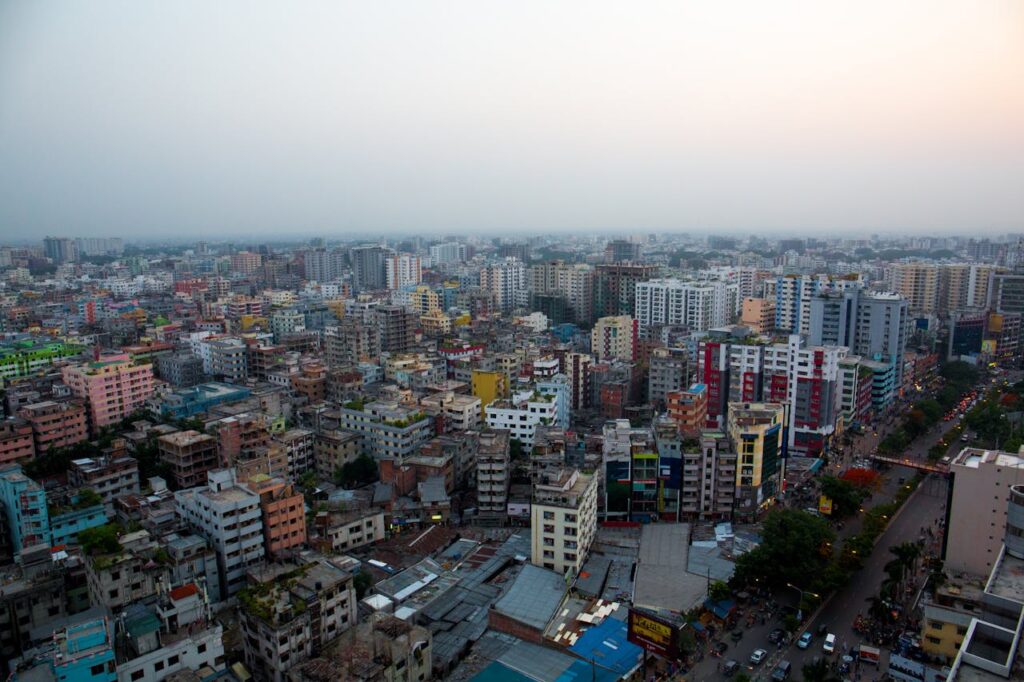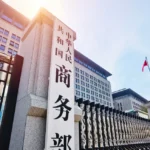Over the past three decades, Bangladesh has witnessed remarkable economic growth, establishing itself as a significant player in the global market. Historically, the country faced numerous challenges, including political turbulence and natural disasters. However, the resilience of its people and government initiatives have played a vital role in steering the nation towards economic stability and expansion. Today, Bangladesh is recognized for its consistent GDP growth, which has averaged around 6% to 7% annually, even amidst global economic challenges.
One of the fundamental pillars of Bangladesh’s economic success is its emphasis on diversification. The country has transitioned from an agriculture-based economy to one that includes robust sectors such as textiles, pharmaceuticals, and information technology. The ready-made garments (RMG) industry, in particular, has catapulted Bangladesh into the position of the second-largest apparel exporter worldwide. This evolution highlights the nation’s ability to adapt to changing market demands and leverage its comparative advantages.
Furthermore, Foreign Direct Investment (FDI) has surged in Bangladesh, driven by favorable investment climate policies and government incentives. The finance sector in particular has witnessed significant reforms aimed at fostering enterprise and bolstering economic growth. Initiatives such as the establishment of special economic zones and improvements in infrastructure continue to attract investments from both domestic and international stakeholders.
The resilience demonstrated during the COVID-19 pandemic further solidified Bangladesh’s status as a burgeoning economy, with prompt policy responses and adaptive measures minimizing adverse impacts. All these factors jointly contribute to an optimistic outlook on Bangladesh’s economic future, pointing towards sustainable growth opportunities. As a beacon of continued development in the emerging markets sphere, further exploration of the specific factors and sectors driving this momentum will reveal crucial insights into the role that Bangladesh plays on the global economic stage.
Unwavering GDP Growth: A Historical Perspective
Over the past three decades, Bangladesh has carved a niche for itself in the arena of economic development, showcasing a remarkable pattern of uninterrupted GDP growth. Unlike many nations that have grappled with economic downturns, Bangladesh has consistently registered positive economic expansion, establishing itself as a resilient player in the global finance landscape. This steadfast growth trajectory is particularly noteworthy in the context of emerging markets, where fluctuations are prevalent.
Focusing on the past decade, Bangladesh’s economy has notably surpassed significant milestones in GDP growth, with annual growth rates frequently exceeding 7%. This consistent upward movement has not only propelled the country into discussions surrounding investment opportunities but has also elevated its profile among investors seeking stable economic environments. The reasons underpinning this success are multifaceted; structural reforms, robust domestic demand, and an expanding export sector have played crucial roles in fostering a conducive atmosphere for economic growth.
Moreover, the government’s strategic emphasis on infrastructure development has enhanced connectivity and accessibility for businesses, further stimulating economic activities. Sectors such as ready-made garments, agriculture, and information technology have flourished, contributing significantly to the nation’s GDP. These sectors not only stimulate significant investment from both domestic and international investors but also underscore Bangladesh’s commitment to becoming a vital hub in the global supply chain.
In essence, the historical perspective of Bangladesh’s GDP growth reflects a story of resilience and strategic advancement, making it particularly attractive for investment. Such sustained progress positions Bangladesh as not just a beacon of hope but a leader in economic performance within emerging markets. As we move toward the future, this steadfast growth is expected to continue, reinforcing the prospects for further financial investment and development.
Political Stability: The Foundation of Economic Growth
Political stability plays a pivotal role in shaping the economic landscape of Bangladesh. Since gaining independence in 1971, Bangladesh has experienced periods of political turbulence; however, recent years have exemplified a more steady democratic system. This stability has been instrumental in creating a conducive environment for investment and economic activities. Investors often seek countries that demonstrate a predictable political climate, as it directly influences business operations, regulatory framework, and overall economic health.
The government of Bangladesh has undertaken significant measures to bolster political stability with the aim of encouraging foreign investment. Effective governance, regular elections, and the strengthening of democratic institutions have contributed to a stable political framework. As a result, foreign investors are increasingly confident in establishing operations in Bangladesh, knowing that their investments are less likely to be undermined by abrupt changes in policy or governance. The stability enables them to focus on long-term strategies rather than being preoccupied with potential political upheavals.
Moreover, the stability has resulted in the development of key sectors such as finance, telecommunications, and manufacturing, which are the backbone of the nation’s economy. The government has recognized the importance of attracting foreign capital, leading to a myriad of reforms aimed at simplifying investment procedures and enhancing the ease of doing business. This approach has not only facilitated local businesses but has also invited multinational corporations to explore opportunities within Bangladesh’s burgeoning market.
In conclusion, the political stability in Bangladesh is not merely a background factor; it is a vital foundation that supports emerging economic growth. By fostering investor confidence through a solid democratic framework, Bangladesh has cemented its position as an attractive destination for those looking to invest in emerging markets. This ongoing stability directly translates into increased finance, growth, and opportunities that benefit the nation’s economy and its people.

Inflation Control: A Testament to Sound Fiscal Management
In recent years, Bangladesh has made significant strides in controlling inflation, a crucial factor in fostering a stable economic environment conducive to investment and development. Through a combination of effective monetary policy and disciplined fiscal management, the country has managed to maintain relatively low and stable inflation rates, despite external pressures such as global commodity price shocks and supply chain disruptions. This achievement speaks volumes about the government’s commitment to ensuring price stability, which is essential for long-term economic growth.
The Bangladesh Bank, the nation’s central bank, has employed various monetary measures aimed at controlling inflation. These include interest rate adjustments, which directly impact borrowing costs, and the use of reserve requirements for commercial banks, thereby influencing the overall money supply in the economy. By adopting a proactive stance in managing liquidity, the Bangladesh Bank has succeeded in mitigating inflationary pressures and enhancing overall financial stability. Additionally, the central bank’s transparency and clear communication of its policies have increased public confidence and fostered a favorable investment climate.
Fiscal policies also play a pivotal role in maintaining inflation control. The Bangladesh government has focused on disciplined public spending and revenue generation strategies to avoid budget deficits that could lead to excessive money printing. By prioritizing investment in infrastructure and social services, the government not only addresses pressing economic needs but also lays the groundwork for sustainable growth. The implementation of targeted subsidies and price controls on essential goods has helped mitigate the impact of inflation on the most vulnerable populations, further illustrating the government’s commitment to economic stability.
Through these deliberate policies and prudent management strategies, Bangladesh has created an environment where both local and foreign investors can feel secure in their financial commitments. The steady inflation rates reflect not only the effectiveness of the measures in place but also the potential for continued economic progress as the nation navigates its growth trajectory amid regional and global economic changes.
The Competitive Edge: Connectivity and Market Environment
Bangladesh has emerged as a pivotal hub of economic activity within the South Asian region, driven largely by its strategic connectivity and favorable market environment. Transport infrastructure, including a comprehensive network of roads, railways, and ports, facilitates seamless movement of goods both domestically and internationally. The development of the Dhaka-Chattogram Highway and the Padma Bridge are significant undertakings that enhance logistics and reduce transit times. These infrastructural improvements position Bangladesh as an attractive destination for investment and trade.
Moreover, the country’s ports, particularly the Port of Chattogram, serve as vital gateways for international trade, connecting Bangladesh to global markets. The government’s ongoing investment in dredging and modernization projects seeks to increase port capacity, ensuring that Bangladesh remains a competitive player in global supply chains. Such robust maritime infrastructure not only lowers shipping costs but also enhances the reliability of supply routes, fostering confidence among investors.
In addition to physical connectivity, advancements in digital communication and technology have transformed the business landscape in Bangladesh. The growth of internet access and mobile connectivity empowers entrepreneurs and small businesses to engage with new markets, both locally and globally. The government’s push towards a digital economy, highlighted by initiatives like Digital Bangladesh, further strengthens the overall business environment, making it easier for companies to access essential financial services. Seamless communication networks help streamline operations, enabling firms to respond swiftly to market demands.
The integration of improved transportation and communication infrastructure creates a competitive environment that attracts foreign investment. Businesses operating in Bangladesh benefit from access to a diverse labor pool and lower operational costs, positioning the nation favorably in comparison to its regional counterparts. This convergence of factors not only bolsters economic growth but also establishes Bangladesh as a beacon of opportunity in the emerging markets landscape.
Investment Climate: Focused on Growth
Bangladesh has positioned itself as a dynamic hub for investment and finance in South Asia, reflecting its commitment to enhancing the private sector’s role in the economy. With a rapidly growing market, the country has implemented a series of reforms designed to create an open and competitive investment climate, which appeals to both local and foreign investors. These reforms include policies aimed at easing business operations, offering attractive incentives, and ensuring a regulatory framework that fosters growth.
The government of Bangladesh has recognized the critical role that private investment plays in achieving its broader development goals. By establishing various economic zones and special investment incentives, the country aims to attract significant foreign direct investment (FDI). These zones are strategically located to facilitate logistics and access to key markets, thereby enhancing the appeal for investors. Furthermore, the commitment to infrastructure development—such as roads, bridges, and ports—underlines Bangladesh’s dedication to supporting the finance sector’s growth through improved connectivity.
In addition to physical infrastructure, the government has instituted sector-specific policies to bolster investment in areas such as technology, garments, and renewable energy. For instance, initiatives to promote green finance reflect a forward-looking approach towards sustainable economic development. Moreover, the Bangladesh Investment Development Authority (BIDA) has been instrumental in streamlining the investment process by reducing bureaucracy and enhancing regulatory transparency. This enhanced facilitation measures couples with a focus on stakeholder engagement create a conducive environment for investment, making Bangladesh a competitive player in the global market.
The interplay between public policy and private investment in Bangladesh serves as a testament to the nation’s aspirations for economic transformation. Moving forward, the ongoing focus on maintaining a favorable investment landscape will be crucial in establishing Bangladesh as a thriving economy within the emerging markets framework.
Energy Pricing in Bangladesh
Energy pricing plays a crucial role in the overall economic landscape of Bangladesh, serving as a significant determinant of the country’s investment climate. The competitive energy prices in Bangladesh provide a substantial advantage for businesses operating within its borders. In comparison to neighboring countries, the cost of energy generally remains lower in Bangladesh, which proves beneficial for industries that have substantial energy requirements, such as manufacturing and textiles.
The energy sector in Bangladesh has undergone significant reforms aimed at enhancing efficiency and reducing operational costs. Implementing policies that encourage private sector participation has led to improved energy supply and distribution, lowering the costs that businesses face. Consequently, these favorable prices have attracted foreign direct investment (FDI), particularly in sectors that rely heavily on electricity and gas for production processes.
Moreover, the impact of energy pricing extends beyond attracting investment; it influences the broader economic growth of the nation. Lower energy costs enhance production capabilities, enabling companies to offer competitive prices for their goods and services. This, in turn, promotes an environment conducive to trade, as local products can compete both regionally and globally without the burden of exorbitant energy expenses.
Furthermore, the Bangladeshi government has been proactive in diversifying its energy sources, which includes a mix of traditional and renewable energy. This diversification not only ensures energy security but also stabilizes pricing, which is essential in maintaining a consistent investment environment. The focus on renewable energy projects has the potential to make energy pricing even more competitive in the long term, aligning with global trends towards sustainability.
In conclusion, the competitive energy pricing landscape in Bangladesh serves as a vital element in enhancing the attractiveness of the country for investment. By maintaining low energy costs, the nation fosters a conducive environment for various sectors, significantly contributing to its overall economic growth and stability.
Protective Measures for Investors
Bangladesh has emerged as an increasingly attractive destination for foreign investments, underpinned by a robust legal framework designed to protect investors. Central to this framework is the Foreign Private Investment (Promotion and Protection) Act of 1980, which serves as a cornerstone in providing security for investments made by foreign entities in the country. This legislation ensures that foreign investors can operate without the fear of expropriation, as it clearly prohibits the confiscation of assets without appropriate compensation. Such legal safeguards instill confidence among investors, promoting a stable environment where financial ventures can flourish.
Furthermore, the Act delineates various types of investment protections, including guarantees against discrimination and the right to repatriate profits. These provisions are instrumental in fostering a conducive atmosphere for international finance and investment. By ensuring that foreign investments are treated equally and fairly, Bangladesh bolsters its reputation as a promising hub for global investors seeking growth opportunities in emerging markets.
In addition to the protective measures enacted by the 1980 Act, the Bangladeshi government has introduced numerous policies that further solidify the investment climate. For instance, the establishment of the Bangladesh Investment Development Authority (BIDA) serves as a crucial facilitator that provides essential support and guidance for prospective investors. BIDA’s role involves streamlining business processes, offering information on investment incentives, and addressing investor queries promptly. Such initiatives demonstrate the government’s commitment to enhancing the investment ecosystem and ensuring that all financial interests are adequately protected.
Moreover, Bangladesh is continuously working on regulatory reforms to encourage foreign investment and improve the overall ease of doing business. These efforts include simplifying tax procedures, enhancing transparency, and strengthening the judiciary to handle investment disputes more efficiently. Collectively, these protective measures and reforms significantly enhance the appeal of Bangladesh as a destination for finance and investment, ultimately contributing to its status as a beacon of economic growth in the region.
Conclusion: A Promising Future for Bangladesh
Bangladesh has emerged as a notable player within the realm of emerging markets, showcasing impressive economic growth driven by various favorable conditions. The country’s strategic geographical location, coupled with its young, dynamic workforce, sets a strong foundational platform for robust economic advancement. Additionally, government initiatives aimed at modernizing infrastructure and fostering a conducive investment climate have attracted significant interest from both domestic and international investors.
The textiles and garment sector remains a significant pillar of the Bangladeshi economy, contributing substantially to both employment and export revenues. Furthermore, the country’s increasing focus on digital transformation and technological innovation presents exciting avenues for investment in the finance and technology sectors. As Bangladesh continues to diversify its economic portfolio, potential investors are met with a unique blend of opportunities that promise high returns.
In light of the ongoing global economic challenges, Bangladesh’s resilience and adaptability have become key factors that bolster investor confidence. The government’s commitment to sustaining economic growth through policy reforms and infrastructure development underpins the country’s optimistic outlook. Not only does this create a vibrant marketplace, but it also establishes Bangladesh as a viable destination for foreign direct investment. Therefore, considering Bangladesh for investment is a strategic decision for those looking to tap into the potential of an emerging economy enriched with opportunities. As the nation moves forward, the collaborative efforts of both local and international stakeholders will be instrumental in harnessing the full scope of Bangladesh’s economic potential for shared growth and prosperity.














